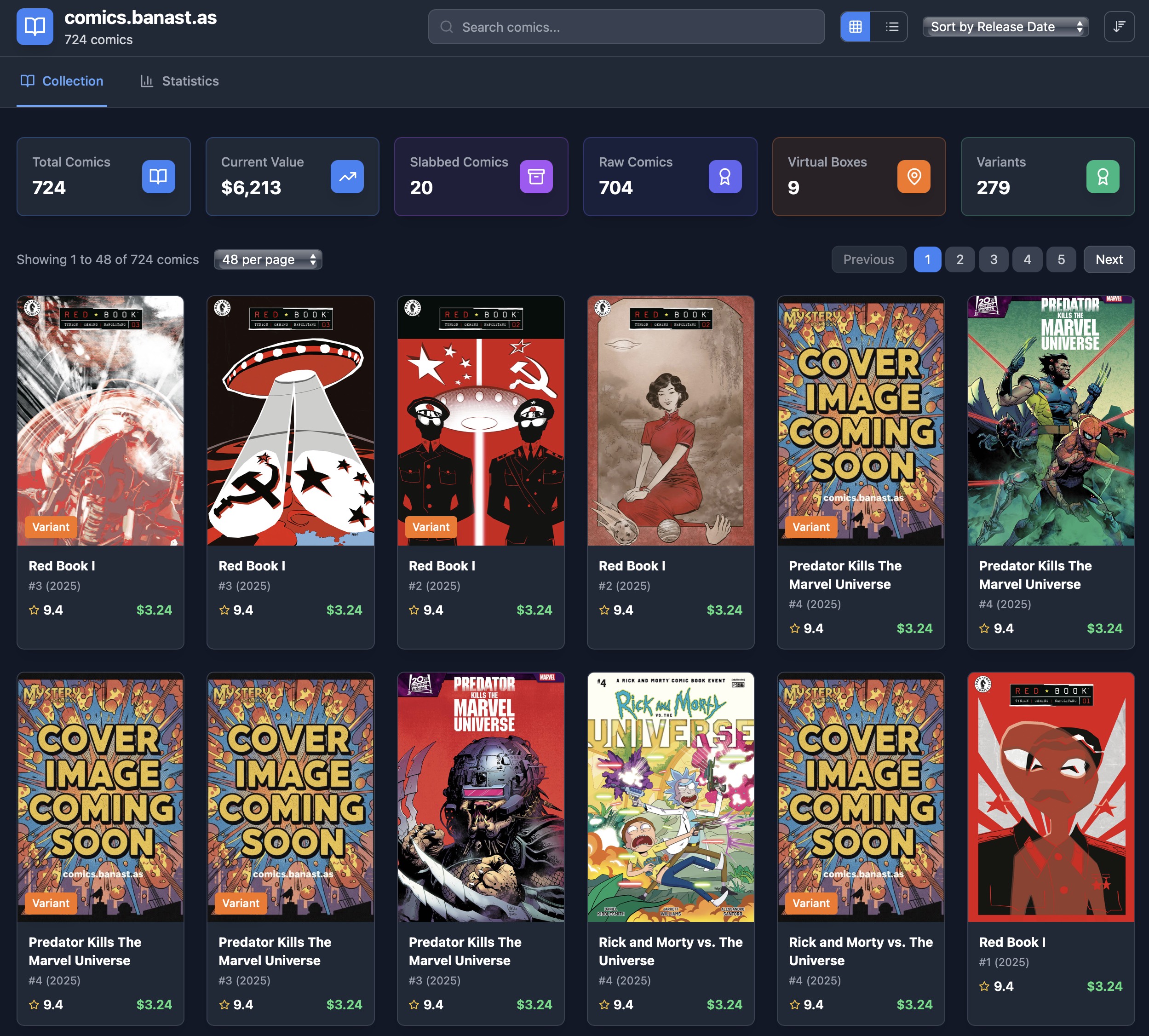
My Dad passed away at the start of 2022 and my Mom decided to sell the house shortly thereafter. I was on the East Coast for work and stopped by before heading back home - spent about six hours going through my childhood bedroom closet, quickly deciding what I could fit into the three oddly shaped boxes I was shipping back to LA (oddly shaped because I needed to prioritize getting two of my guitars home).
When it came to the comic books I hadn’t looked at in over 20 years, I started shoving stacks into whatever empty spaces I could find in those boxes. In retrospect, a moment of poor judgment - I had no idea what issues I even had or what condition they were in, but I wanted them.
Fast-forward a week or two and I had a stack of comics sitting in my house that I didn’t really know what to do with.
Rediscovering the Collection
I did what any reasonable person would do - opened a spreadsheet and started typing in titles and issue numbers. About 30 minutes in, I found a site called CovrPrice, which was way cooler than my sad little spreadsheet. I could actually see rows of cover art and organize everything by title, release date, value, whatever.
The thing is, CovrPrice didn’t just help me organize my old comics - it got me back into collecting. Three years later, I still visit MidTownComics.com religiously, buying new releases and hunting down key issues I missed as a kid.
The Problem
A couple months ago I got an email from CovrPrice saying they were raising their yearly subscription price by 50%. Look, I understand running a web app isn’t cheap, but CovrPrice is slow, cumbersome, built on WordPress, and just not what I would expect for that kind of price hike on what was previously a no-brainer spend.
Also, adding new comics to my collection on their platform took forever - multiple page loads, slow forms, the kind of friction that makes you put off data entry until you have 20 books stacked up waiting to be logged.
Around the same time, a few things converged. I had been getting slowly addicted to what I call “vibe-coding” with AI assistants like bolt.new. We went on vacation for two weeks in the South of France (where I naturally spent way too much time thinking about side projects). And while we were there, bolt.new had some kind of crazy free tokens weekend.
I have a love/hate relationship with bolt.new - it’s very good at starting projects and getting you 80% of the way there, but there usually comes a point where it ends up burning tokens like crazy in circular bug-fix loops and you have to rescue the code yourself.
That said, I decided to see if I could build a personal, self-hosted version of CovrPrice with a modern stack and, more importantly, with the flexibility to quickly add new purchases that would otherwise take me forever on CovrPrice.
Building It
This ended up being the first project where I used two coding models to work together by checking each other’s work, which resulted in a fairly bug-free deployment that I’m pretty happy with.
I built it with React, TypeScript, and Tailwind CSS - fast, responsive, and designed specifically for how I actually use it. I even added a simple n8n workflow that updates the site’s main JSON file whenever I add new purchases to a Google Sheet. The next step will probably be triggering this automatically from email order receipts from places like MidTown Comics.
I list current values for each comic, but I don’t have this tied into any existing system - I messed around with pulling spot averages from eBay listings, but there was too much room for error when trying to match exact issues, variants, conditions, etc. It would be cool to add long-term, but it’s not incredibly important to me; organization is paramount to all other features.
Once I got the build as bug-free as I possibly could, I made the repo public and released it as open source: github.com/banastas/comics.banast.as
Why It Matters
If you collect comics and want a modern, self-hosted way to track your collection without subscription fees, check it out. It takes about five minutes to get running locally, and you can deploy it to Netlify, Vercel, or Cloudflare for free if you want to access it from anywhere.
And if you find bugs or want to add features (like that automatic value tracking I skipped), pull requests are welcome.